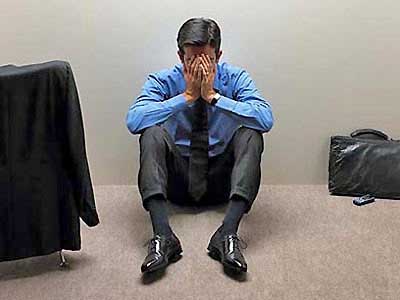Losing your job is bad—for you.
失业对你而言当然是件坏事。
But it could be good for the rest of us.
但丢了铁饭碗这件事在我们其他人看来可能受益良多。
Because a study shows that a recession lowers mortality in the population overall—even as the out-of-work individual's risk of death rises.
因为一项研究表明,经济衰退可以降低总人口的死亡率,即使失业人口的死亡风险上升也是如此。
That paradoxical finding appears in the American Journal of Epidemiology.
这一矛盾的研究发现已经在《美国流行病学》杂志上发表。
It's easy to imagine that the stress of getting canned could pave the way to an untimely demise.
我们会很容易理解被炒鱿鱼的压力会加速个体的死亡。
But can joblessness really improve societal survival?
但如果失业可以改善社会生存能力呢?

To find out, researchers examined data from the US Department of Labor and a 20-year survey of so-called “income dynamics.”
为了寻找答案,研究人员对来自美国劳工部一份长达20年被称为“收入动态”的数据进行了研究。
And they found that job loss is linked to a 73 percent rise in the probability of death for the newly unemployed—the equivalent of adding 10 years to his or her age.
之后研究人员发现对于新失业者而言,失去工作和73%的死亡率相关,失业的人会等于会继续存活10多年。
At the same time, parsing the data state by state, the researchers found that people in general live longer during an economic downturn—an extra year for each percentage-point rise in unemployment.
与此同时,通过分析各州的数据研究人员发现,在经济低迷时期人们会活得更久,失业率每增长1%,人们就会多活一年。
One possible explanation: when the economy is strong, people commute more and sleep less—raising the risk of car crashes and job-related injuries.
对此相对合理的解释就是:当经济发展良好,人们更多的往来通勤,造成睡眠时间减少—这就使得车祸及与工作相关伤害的风险增加。
Such accidents are less likely when folks are sitting on their couches polishing up their resumes.
这些事不太可能发生在坐在沙发上不断修改简历的人群。












